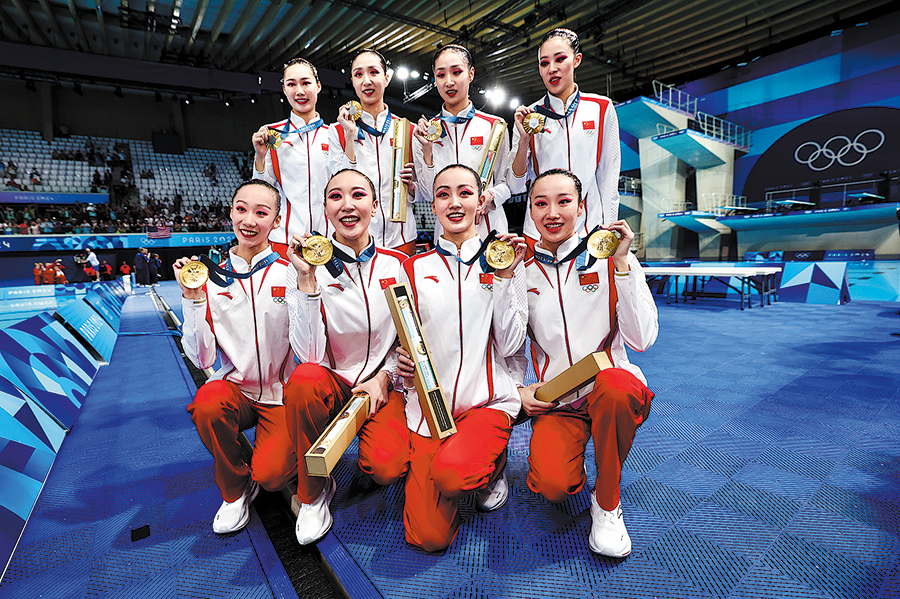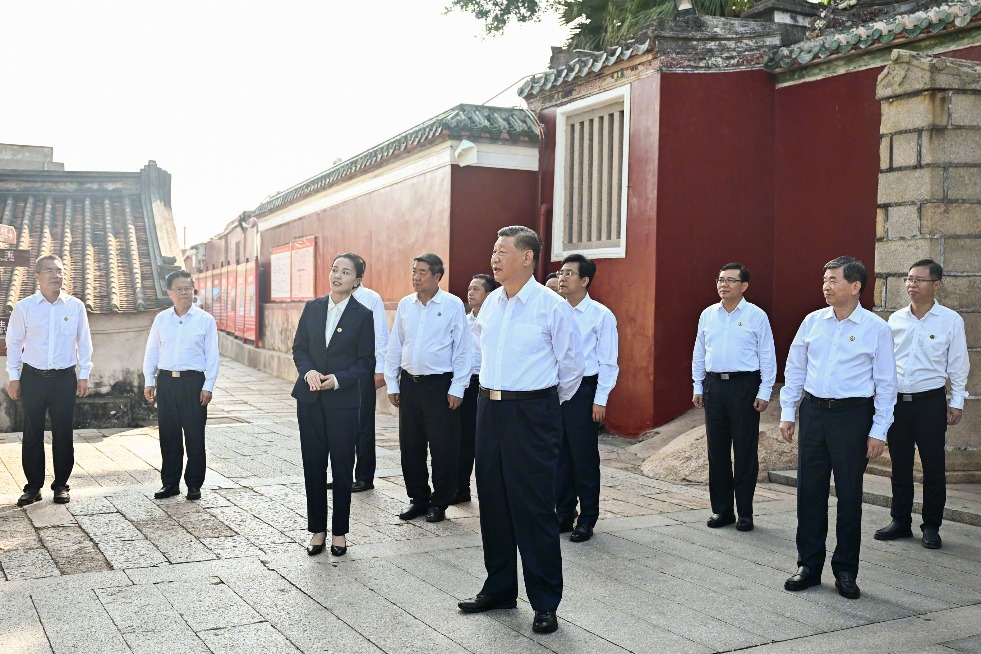The golden generation
After a 36-year journey, China has finally set foot on the top step of an Olympic podium


Zhang Xiaohuan, the team's head coach, explained that she integrated Chinese cultural elements into the routine choreography to emphasize the artistic sensibilities of the nation's heritage.
"For instance, one formation represents the Chinese character shan (mountain) found on ancient oracle bones, evoking the imagery of rising peaks. This also reflects our team's relentless pursuit of its dreams," she explained.
"Preparation was tough, but we kept ourselves in the fight and persevered. I think this was a great performance. We also drew inspiration from our competitors, as well."
Zhang Xiaohuan noted that the new rules required athletes to master challenging maneuvers that they had never attempted before, so there was not only considerable pressure, but a physical toll.
"They fought hard and never gave up. Training has been extremely demanding, with athletes suffering broken bones, facial injuries, and other issues that required hospital visits," Zhang Xiaohuan said.
She also acknowledged the crucial technical assistance from China's diving team, which played a key role in the high scores of the artistic swimmers in Paris. "I am very pleased with our performance, and I'm sure the Chinese diving coaches are proud of the results, too."
Zhang Xiaohuan was the captain at the 2008 Beijing Olympics, when the team won bronze.
"That bronze medal was very meaningful to me. Many teammates retired afterward, but I stayed to pursue my dreams. Today's gold medal is the result of the joint effort of several generations of artistic swimmers. It is through that continuous effort that we achieved this success," she concluded.
























